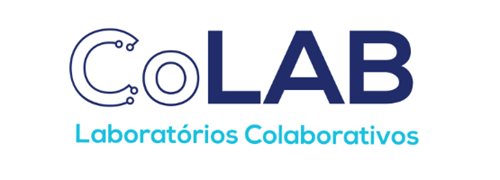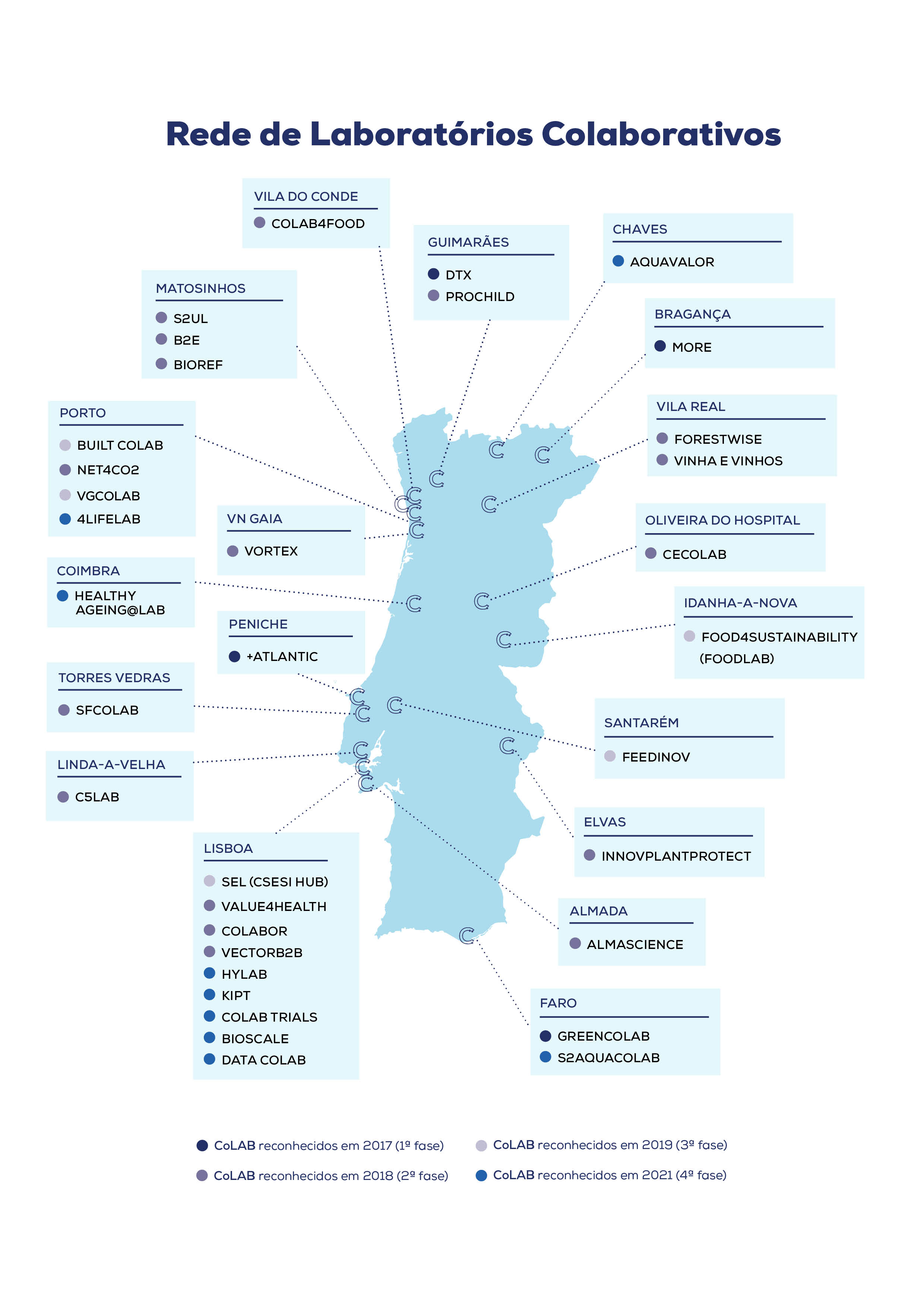INFORMAÇÃO
Por favor, aguarde...


Pedido submetido com sucesso.

The Portuguese national network of Collaborative Laboratories (CoLAB) was recently strengthened by the approval of nine new proposals within the scope of the 4th international annual evaluation exercise for the recognition and attribution of the “Collaborative Laboratory – CoLAB” title. The new CoLABs operate in strategic areas such as health and ageing, green hydrogen, thermal waters, data science, sustainable aquaculture and tourism, contributing to boost the implementation of research and innovation agendas with international relevance and national impact. (see table 1).
The process was launched in 2017 for the creation and promotion of “Collaborative Laboratories – CoLAB” through the Interface Program, and its main objective has been to create, directly and indirectly, qualified employment in Portugal in close connection with the social and economic valorisation of knowledge.
The program has been implemented through a competitive annual selection based on the evaluation by international experts of research and innovation agendas. These agendas, aimed at creating economic and social value, include the internationalization processes of the scientific and technological national capacity in relevant intervention areas and the development of R&D activities that enhance the synergies with scientific and higher education institutions, namely within the scope of specialized, professional or advanced training programs in close collaboration with social, economic and cultural partners.
35 laboratories are now recognized, as described in table 2, corresponding to initiatives in various domains of knowledge and with regional or national scope, contributing to the densification of the national territory in terms of knowledge-based activities. Currently, to develop their research and innovation agendas, CoLABs mobilize around 300 entities, including more than 120 companies.
By the end of 2020, the public funding available through national and community funds for the creation and promotion of “Collaborative Laboratories - CoLAB” amounted to 68.6 million euros, having already contributed to the creation of 466 direct highly qualified jobs, 33% of which are held by PhD holders.
The Collaborative Laboratories have contributed to reinforce and complement the current structure of Technological Interface Centres (CIT) and other intermediary institutions in Portugal, also diversifying and complementing the existing structure and the performance of the R&D units and Associated Laboratories. Thus, having the diversification and densification of the R&D type of institutions as a clear objective, CoLABs are oriented towards the creation of social and economic value through qualified employment, namely:

In this context, the development and promotion of Collaborative Laboratories has been stimulated within the scope of mobilizing research and innovation agendas and programs with international relevance and national impact, duly settled between universities, polytechnics, R&D units and associated laboratories, the State laboratories, and the social, cultural, and economic fabric, involving companies and intermediate and knowledge transfer institutions.
The establishment, since 2017, of Collaborative Laboratories in Portugal has thus represented a new phase of evolution, development and maturity of the research and innovation system, contributing to reinforce the institutionalization of the collaboration between different institutions, together with the interinstitutional co-responsibility of knowledge-based strategies, as well as strengthening the collaboration of scientific and higher education institutions with intermediate and knowledge transfer institutions, promoted in recent years. The intention is to encourage cooperation between R&D units, higher education institutions and the productive, social and/or cultural sector, ensuring new collaborative and risk-sharing activities between the public and private sectors that are capable of creating value and qualified employment. (see table 3).
The Collaborative Laboratory status is granted by the Foundation for Science and Technology, FCT, for a renewable period of five years after an evaluation process by a panel of international experts, coordinated by Professor José Luis Encarnação (Fraunhofer Society and Darmstadt University, Germany) during all of these years.
The monitoring of Collaborative Laboratories is the responsibility of ANI - Agência Nacional de Inovação, based on the best international practices, including mentoring by the panel of international experts, coordinated by Professor José Luis Encarnação.